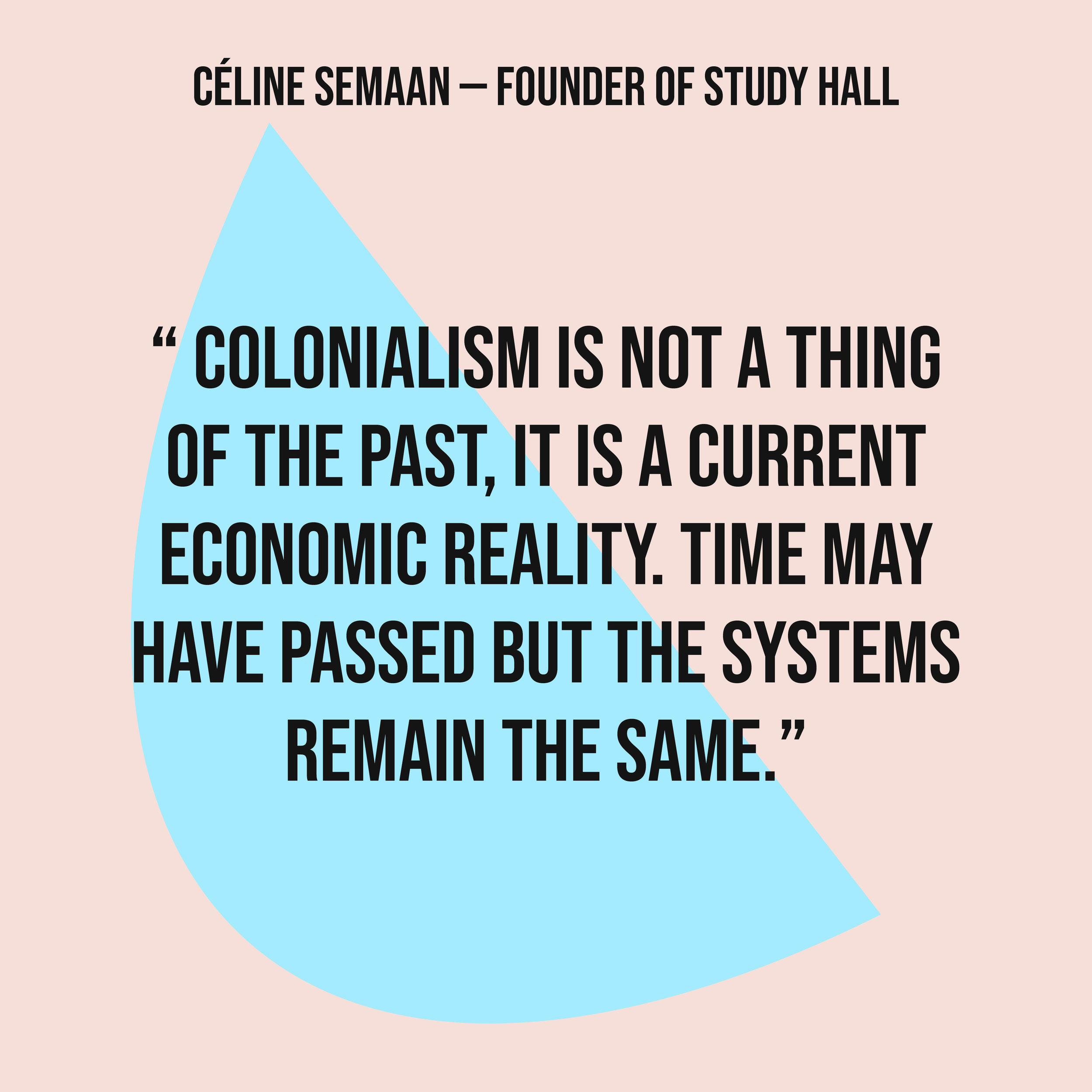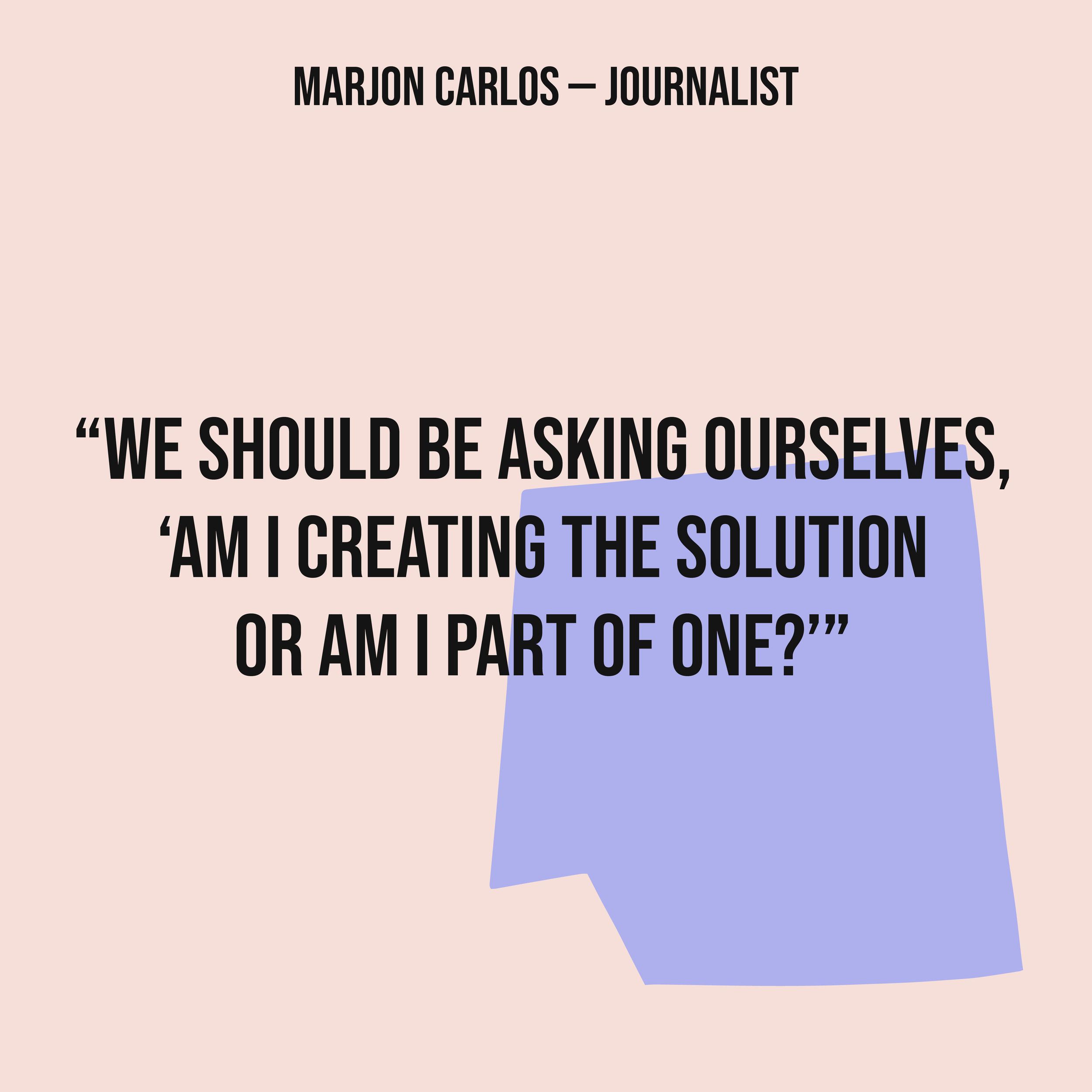Quote from Céline Semaan, founder of Slow Factory at Study Hall London
We need an “entire consciousness upgrade” to tackle fashion’s sustainability problem.
Influential minds from media, manufacturing, design, science and art converged this last weekend as Central Saint Martins played host to “Study Hall: Sustainability as a Culture”, a sustainable fashion conference organised by New York based Slow Factory as a part of their international Study Hall conference series.
The event took place during Fashion Revolution Week, on the 6th anniversary of the Rana Plaza factory collapse. To open the event, Slow Factory’s CEO Céline Semaan told audiences: “the life that we live right now on this planet requires 1.7 earths to sustain”.
In response to the title, talks covered a breadth of topics that explored how culture can influence sustainability within the fashion industry. Panel discussions included journalists such as American writer Aja Barber, Native American activist and writer Allen Salway, and Sophia Li the former entertainment media editor for Vogue. Other standout contributions came from Claire Bergkamp, Head of Sustainability at Stella McCartney, Priya Ahluwalia from adidas, and Adriana Galijasevic denim & sustainability expert at G-Star Raw. All of whom talked about how smart design and sharing knowledge collaboratively can authentically change how fashion houses improve their environmental and human rights impact.
Within the programme there was reflection on how we can bring people into the sustainability conversation rather than using shame to exclude people in particular, Yumna Al-Arashi’s very personal reflection on the danger of cancel culture inspired much debate.
In a session that looked at fashion, diversity and the current system writer Aja Barber spoke on the deep inequality within the current system, “When we think about redefining sustainability we need to look at white supremacy. I’m not saying you’re lighting a burning cross on my lawn but we do have to look at the systems in place that have harmed a lot of people.” She also called on companies to hire with more than tokenism in mind, “When you hire one person to oversee diversity for a massive corporation, that one person cannot fix all of your problems.”
Moderator Celine Semaan added, “Unless we see women of colour in the C-suites and at a governance level we are not going to see the diversity we need. Diversity is not just one model of colour in a quick campaign for your brand. It is very much about governance.”
Elsewhere Kerry Bannigan from the Conscious Fashion Campaign discussed how brands becoming more upfront with their sustainability efforts could aid the consumer. Panelist’s also said they’d noticed a shift among people in the industry taking a nuanced and holistic approach to the problem. Recho Omondi, a fashion designer based in New York, and the host of popular fashion podcast The Cutting Room Floor says that there is a movement to rebrand luxury fashion as something that is sustainable, “To be in vogue is to reflect what is happening currently. Sustainability is what is happening right now,” she explained. “Everyone has humbled themselves in the fashion industry so now we can talk and share knowledge.”
What emerged throughout the day is that the issue is extremely complex. Links were made between a colonial model of exploiting communities of colour and how the fashion industry uses third world or indigenous labour. Native American activist and writer, Allen Salway, proposed an argument that the solution to sustainability may lie in communicating with indigenous communities who are in tune with working with their natural surroundings. It’s not often that these thoughts share a stage with major players within fashion and are linked to the conversation around climate change.
The journey towards a sustainable fashion industry will be marred with moral conflict. According to the British Fashion Council, the fashion industry represents £32 billion of the British economy. American consumers spent nearly $380 billion on apparel and footwear in 2017. Additionally, on a more global scale the industry is worth $2.5 trillion global industry. Having conversations around conservation and buying less is almost the antithesis to an industry built on manufacturing and profit. “None of us are sustainable brands, we’re doing the work but there’s a reality to this,” said Mara Hoffman. “Anybody that is thinking about sustainability who is manufacturing and isn’t in conflict then you’re not really thinking about this topic properly.” She added, “We need an entire consciousness upgrade so we’re not filling a void with consumerist purchases.”
Despite some damning themes, “Sustainability as a Culture” was an uplifting event. With around 12 years to find solutions to possibly catastrophic climate change, it showed a willingness in the industry to make some major changes from production to the actual materials themselves. The brands involved such as adidas Originals were there with an ambition to support and advocate sustainability within the industry. Their mission, in partnership with Study Hall is to create cultural context around the topic casting a lens through the next generation who are actively engaged and acting in affecting positive change. As Céline Semaan asked fellow designers: “There is so much to be done. We have less than 10 years so what are we doing?”
Although change is needed at a systemic level there are still things we can do as consumers to be part of a more conscious consumer movement. Here are some of our take-away’s from the sessions:
1) Be more responsible with your buying by thinking about whether your purchase is good for the earth, and good for people.
2) Check the fashion transparency index to research how a company operates and look if the company is transparent about where goods are made
3) Be intersectional. Whose job is it to change? Is it the job of the single parent living on the poverty line who has children to dress? Editors should profile affordable sustainable goods and take a keen interest in avoiding the promotion of companies that use cheap and abusive labour from communities of colour.
4) Only buy what you need. If you’re eyeing up a capsule collection that is sustainable but you don’t need the clothes are you just acquiring more goods?
5) Change your worldview. If you follow lots of influencers encouraging you to buy more or to covet items, consider following people who will diversify your world view there are a lot of sustainability influencers who can inform your buying decisions.
Photographer Ronan McKenzie was commissioned by adidas Originals and Riposte Magazine to capture portraits of all Study Hall speakers to create a visual document of those voices who are pushing the conversation and action forward within fashion and sustainability. All portraits featured here were shot by Ronan.
You can watch all of the Study Hall London sessions here and follow Slow Factory for upcoming future dates.















